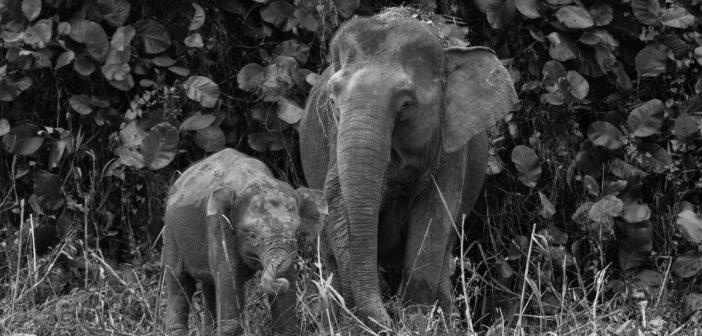Friends of the Earth Malaysia (FOEM) is shocked to learn of the deaths of six more pygmy elephants, the latest in a series of elephant deaths over the last several years.
Elephants are not the only wild animals in peril, as the carnage inflicted on turtles and sharks in Malaysia has been making headlines in the previous year, reflecting poor government protection of wildlife in general. That killings are happening so frequently can only mean that those entrusted with the task of protection are not doing enough. So far those responsible for the killings have not been charged, and the cause of deaths of the pygmy elephants and others have yet to be established. Most killings end with unresolved investigations.
Knowing how critically endangered pygmy elephants are, the stakes for this species’ survival are too high for incidents of this sort to happen again. The same can be said for the many other animal species who are currently fighting to survive in the state of Sabah, plagued as it is by palm oil production. The palm oil industry’s monumental and crippling impact on orangutans is well known, but the blood of other species is on their hands as well.
The news of the death of these elephants has shone a huge negative spotlight on Sabah. Sadly Malaysia is sacrificing its elephants for palm oil.
Recognizing the high demand and huge profits that are associated with palm oil, the industry has stopped at nothing to produce as much of this commodity as possible. With the expansion of deforestation and proliferation of palm oil plantations, elephants are finding it difficult to find food and thus are forced to feed on the fruits of the palm oil plant.
Considered as pests or threats to palm oil production, elephants are subjected to the retribution of palm oil producers. Every year, elephants are found either shot dead or poisoned across Sabah’s elephant home ranges, though the public often hears nothing about it.
It is clear that Malaysia’s previous government did not take effective action to prevent the future deaths of pygmy elephants or to hold accountable those responsible for elephant deaths. Moreover it did not have the political will to adopt more drastic actions affecting big logging companies and plantations. Though an action plan was developed for conservation of the Bornean elephant, implementation so far has been seriously wanting.
There is a glimmer of hope now that the Malaysian government has changed hands, and FOEM is delighted to learn of the actions of Chief Minister Datuk Seri Panglima Haji Mohd Shafie in taking necessary and appropriate action to stop more unnecessary destruction of Sabah’s wildlife. It is indeed a step in the right direction.
To save pygmy elephants, the forest of Sabah must be restored. At the very least, wildlife corridors must be created to allow elephants to move from one fragmented patch of forest to another, preventing them from becoming trapped in forest islands. Other measures include curbing palm oil plantations and creating more national parks.
FOEM calls on the government and the wildlife authorities to take concrete and immediate action to prevent more untoward deaths of Sabah’s precious wildlife, as this is a matter of utmost public interest that warrants the highest level of priority.
S M Mohd Idris
President
Friends of the Earth Malaysia (FOEM)
Image credit Andrea Schieber, CC BY-NC-ND 2.0





